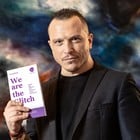Is Social Media Becoming Transactional?
12 experts shared their view
For years, social media was the top of the funnel, a place for storytelling and inspiration, not conversion. However, a recent Adtaxi study reveals just how dramatically these platforms have evolved into commerce engines, with 54% of U.S. adults seeking product or service recommendations on social media and 20% already purchasing directly within the apps.
With 90% of adults active monthly and an average of 4.7 platforms per user, social media has become a near-universal behavioral ecosystem.
Recently, TikTok's new integration with Booking.com has pushed this transformation even further, allowing users to move seamlessly from inspiration to booking without ever leaving the platform. The app is rapidly shifting from a discovery engine to a full booking funnel.
Social media might soon no longer be the billboard before the shop, but the shop itself. When an influencer posts a reel or even an AI-generated itinerary that becomes instantly bookable, the platform itself becomes the destination.
But if inspiration, discovery, and purchase now occur within the same digital space, what happens to OTAs, brand.com, or even the very concept of the "booking funnel"?
In the future, brands and OTAs will need to:
- Reduce their inventory and storytelling — so it's portable, embeddable, and instantly bookable anywhere.
- Invest in API-first distribution — enabling social, AI, and agent ecosystems to transact on their behalf.
- Redefine loyalty — from direct-channel capture to data portability and persistent identity across platforms.
That's an interesting question. However, I don't believe social media will become transactional when it comes to travel and hospitality. That doesn't mean it can't and won't become so for other industries - I can see this already happening for everyday purchases: apparel, jewelry, consumer goods, clothings, etc.
But travel? Booking a two-week trip to Asia is typically not something one does lightly, or without validation, research, and so on. Will generative AI come into play in this sphere? Hell yeah - we're already seeing this with Perplexity (Comet) and ChatGPT in Agent Mode, for example. But social media to book your next hotel, airport transfers or dining experience in a fancy resort? Not so sure...
The booking funnel is indeed evolving, but it's mostly due to GenAI. Having said that, with Google now indexing content from Instagram, it will impact SEO (and GEO) in ways we don't completely understand yet. This in turn could impact social search and social transactions, but the jury remains out there on how much transactional we can expect from social media in the near future!
Good one! 💡
I definitely get a lot of product and service inspiration through my social media feeds. Entertainment is a big factor, but as someone tied into the hospitality sector, I particularly enjoy seeing industry offerings—whether that's cutting-edge technology or tangible experiences like hotels, resorts, and restaurants. The Aman resorts short videos running through my feed right now? Talk about travel inspiration!
Interestingly, I rarely buy through the app itself or on mobile devices. Not because I can't. My tendency is to gather information and then do more deep-dive research on the big screen later on. This reflects the reality that most of my work in this space is research-driven.
That said, my personal habits don't change the strategic reality: social media is a genuine and rapidly rising booking channel for hospitality. The coming wave of Agentic AI will accelerate this shift significantly, using the flow of personal data to dramatically ease the buying experience.
The numbers tell the story, and the effect is undeniable: it's a fundamental and disruptive re-engineering of the entire purchase ecosystem. The TikTok-Booking.com integration is the perfect, seamless illustration of what I call, "Experience-to-Transaction compression." A positive shift on the traditional booking funnel.
TikTok's integration with Booking.com is not an isolated case. This revolution reflects a broader shift in digital marketing and redefines what "social presence" means. The stimulus, the Zero Moment of Truth (when consumers research a product or service before making a decision), and the First Moment of Truth (when they make a purchase decision) are now taking place within a single digital space. Success on social media will no longer hinge solely on storytelling or engagement metrics, but on conversion capability embedded within those stories. Each post, reel, or AI-generated itinerary can become a direct sales channel.
However, when bookings happen inside third-party social media apps, a hotel's ability to cross-sell, upsell, or build loyalty weakens. The challenge now is to balance transactional efficiency with brand intimacy. Hospitality brands must create engaging content that is not only inspiring but also "shoppable." The task ahead is to turn every moment of inspiration into an opportunity for conversion without losing the personalized human touch.
The stages of inspiration, search, and booking are becoming interconnected rather than sequential.
Once AI agents start operating natively inside these ecosystems, the journey from intent to action becomes frictionless.
What used to be a funnel is turning into a loop — context, relevance, and timing will matter more than the platform itself. It also raises an interesting question: if booking and engagement happen where intent originates, what's the future role of the traditional website — a transaction point or just a data repository for AI agents?
According to a recent survey by Beautiful Destinations, 77% of travelers use social media for initial travel inspiration, ahead of review sites, destination sites, search engines, meta travel sites, OTAs, etc.
Social media plays an important role in the Dreaming and Planning Phases of the digital customer journey to engage and intrigue potential customers, inform them of your property's value proposition, services and amenities, news and offerings about your destination, etc.
In other words, social media is a very important customer inspiration and engagement channel. If hoteliers do an excellent job in this channel, they will be able to inform, intrigue and engage potential customers in the Dreaming and Planning Phases and steer them toward the Booking Engine of the digital customer journey.
How about social commerce i.e. using social media as a distribution channel? We have had heated discussions on the subject since 2005. Hospitality has been trying very hard to turn social media into a distribution channel all the way since 2005. For 20 years now! Guess what percentage of hotel bookings come from social commerce? 50%? 30%? 20%? 10%? 5%? Nah, less than 1% of hotel bookings today can be attributed somehow as referrals from social media.
Social media is quickly becoming more than just a place to scroll for inspiration – it’s turning into a one-stop shop. People aren’t just discovering ideas anymore; they’re booking trips, buying products, and making decisions right there in the app. With platforms like TikTok now offering direct booking options, the old idea of a “booking funnel” is starting to fade.
For brands, this means it’s time to rethink how they show up online. Instead of guiding users from social media to a website or OTA, the journey might begin and end on the same platform. Content like influencer posts or AI-generated travel plans isn’t just engaging – it’s instantly actionable.
This shift brings both challenges and exciting opportunities. Brands that adapt quickly can build stronger, more direct relationships with their audiences. It’s about being present where decisions are made – in real time, in the feed.
Social media isn’t just influencing travel choices anymore. It’s becoming the place where those choices are made, booked, and shared – all in one step.
Distribution implies providing customers with the right information at the right touch point when they want. Google's five stages of travel consist of dreaming (inspiration), researching, booking, and experiencing, while sharing runs through the entire journey. The integration between TikTok and Booking.com is a solid example of reaching customers during the inspiration stage. However, what is the percentage of impulse buyers who skip researching and book based on TikTok videos? The increasing diversity of travelers means that hoteliers need to be more visible at an array of channels, including TikTok. Yet, hoteliers will continue to use channels like OTAs, brand.com, and social media to interact with travelers. A solid distribution strategy involves working with different distribution channels to reach different target customers, monitoring channel performance, and optimizing overall inventory and pricing.
On the other hand, the partnership between TikTok and Booking.com means OTAs expand their influence on social media and help hoteliers reach TikTok users. Independent and small hotels with a limited marketing budget already struggle with creating content for social media and optimizing their presence on indirect channels. Booking.com may help these resource-limited hoteliers and solidify its relationship with these hoteliers.
For years, social media worked mostly as a top-funnel ecosystem, shaping awareness and aspiration rather than closing transactions. Its impact was mostly indirect, confined to the early stages of the booking journey and filtered through often-opaque attribution models. However, the linear sequence that once led from inspiration to conversion is dissolving into a continuous behavioral field, where intent, evaluation, and purchase coexist within the same UI.
When social media integrate with Booking.com, it rewrites the interface hierarchy. The UIs of OTAs, brand websites, and metasearch tools lose visibility, as the transactional surface can now live inside the social platform itself (inventory still originates from third-party systems, but the interaction layer has migrated upstream, inside the social ecosystem). What disappears is not only friction but the very architecture of navigation, as the web's traditional layers collapse into a single experiential frame.
The same shift is emerging in systems like ChatGPT"s Instant Checkout, where a single conversational layer serves both discovery and transaction.
So, in my opinion, whether the medium is a social platform or an LLM is irrelevant. What matters is the implosion of the booking journey as we know it, where dreaming, planning, and booking converge into a single click.
Social commerce is becoming more transactional and absolutely represents an opportunity for your hotel. While it's still in its early stages in the US, social commerce continues to grow rapidly in terms of customer interest and platform capabilities.
The key to your success is remembering that social media is built around people. Almost 70% of Americans follow creators and influencers on social channels. 55% of those folks researched a brand's website after hearing about it from their favorite creators. And 43% have purchased from brands those creators recommended.
You can work to become a creator or, even better, you can partner with those who already do it well. You want to appear where and when your guests spend their time. Creator relationships serve as a warm introduction to your property and regularly help hotels like yours build long-term connections with potential guests.
Social commerce isn't about building a new intermediary. It's about reaching customers where they are. Don't turn social into just another OTA. Find creators who can tell your brand story to make social your source for human connections that can last for years.
The integration of services like Booking.com on TikTok, for instance, confirms that the answer to "Is social media becoming transactional?" is a resounding yes. This direct path enhances a brand's "social currency." They don't need to 'burn too many calories' for the process.
The modern booking funnel is no longer linear. Prospects, i.e., travellers, don't come in the top and out the bottom, but move through different touchpoints before, during, and post purchase. Smooth, intuitive interface at all these touchpoints directly influences conversion.
For hotel brands, this direct social media strategy offers the additional benefit of continuous, direct relationships with guests. While Online Travel Agencies (OTAs) will certainly adapt and remain essential for price comparison, social media gives brands the space to provide depth, personality, and storytelling, appealing to emotional marketing.
The traditional booking funnel is evolving. Travelers are transitioning from inspiration to booking in moments, with social media platforms becoming the new marketplace. The TikTok–Booking.com integration is an example of this evolution, where discovery, validation, and purchase seamlessly converge. OTA’s are no longer the sole destination at the end of discovery, they’re becoming invisible infrastructure within the discovery moment itself.
For hospitality brands, this shift introduces new challenges and opportunities in distribution and brand control. Today, visibility depends less on inventory or price and more on captivating content that stands out in algorithm-driven feeds. Distribution is now shaped by attention economics, and not supply logistics. Success requires mastering platform-native commerce, blending storytelling, trust, and real-time booking into a seamless experience.
At Oracle, we recognize this as part of a broader convergence of media, data, and guest experience. The same behavioral insights gained that spark a booking, can flow directly into property management systems, enabling highly personalized stays with automatic early check-in offers, upgrades tailored to guest history, and on-property engagement that reflects each traveler’s intent. As social platforms become end-to-end travel engines, the brands that win will be those delivering inspiration seamlessly from feed to front desk and beyond.












